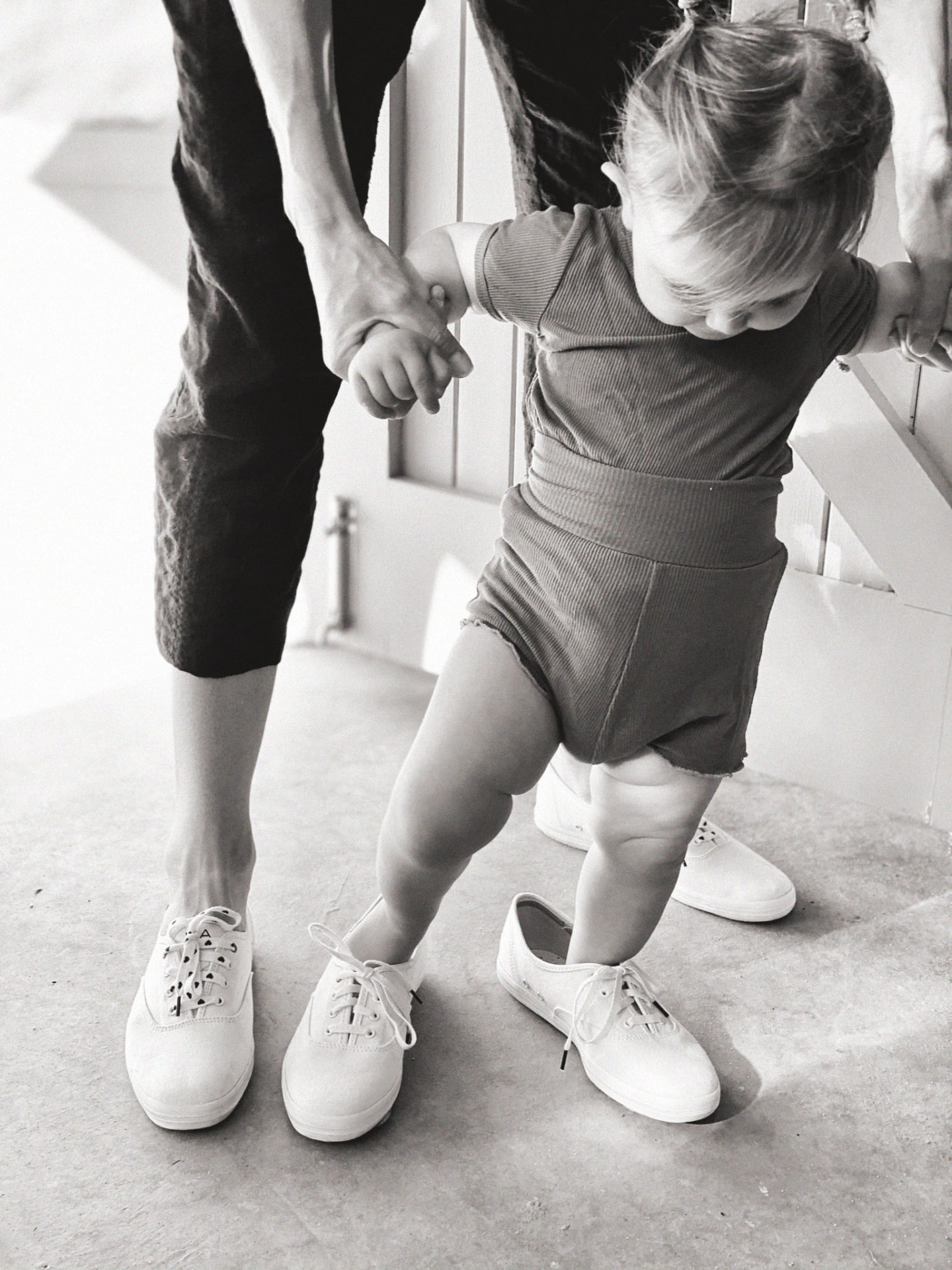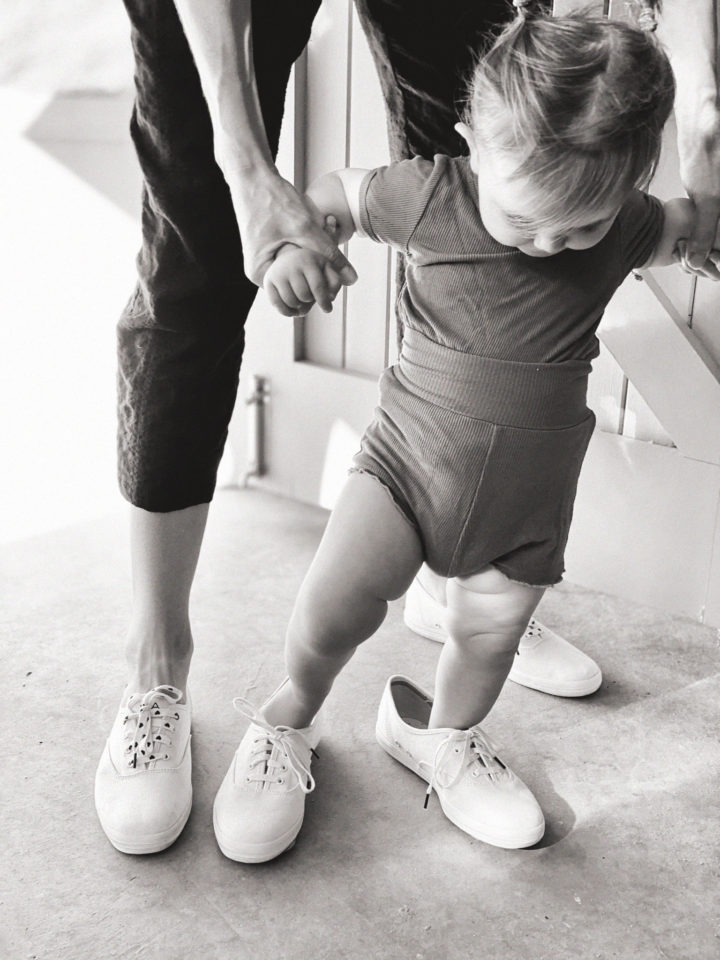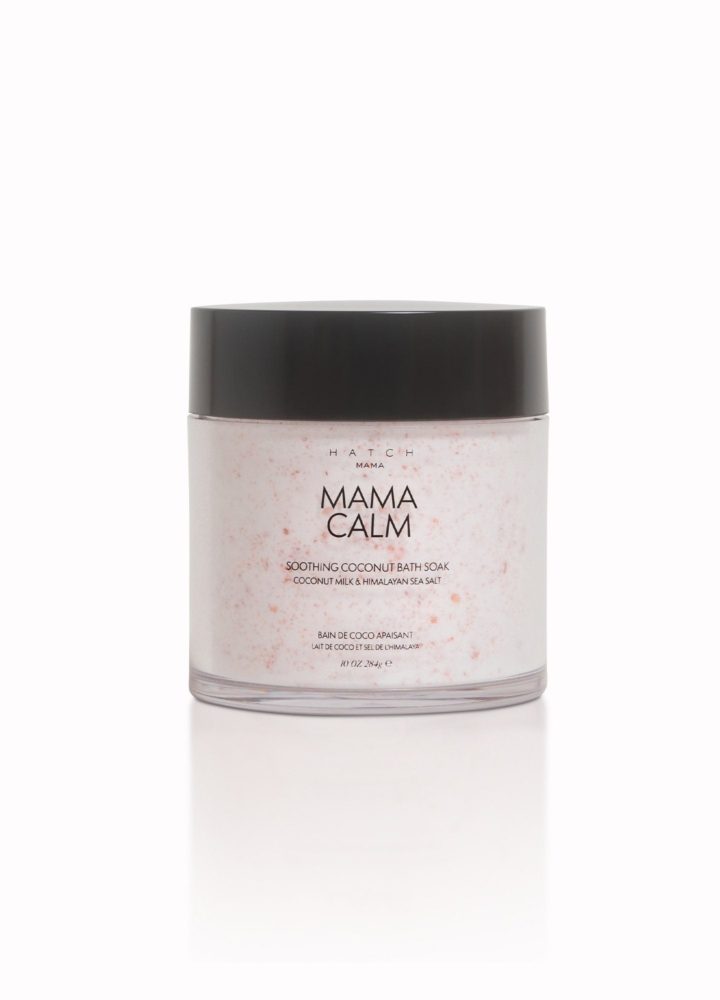You’re having a fairly normal week when all of a sudden, you realize… it’s been, like, three days, and your toddler hasn’t gone to the bathroom. WTF?
Toddler constipation might be a stressful experience, but it’s actually a very common problem with relatively simple solutions. Adults get backed up, too, with pregnant women often experiencing constipation.
Whether your toddler is having constipation right now or you’re just trying to be prepared for the future, you’ve come to the right place. HATCH has gathered what you need to know about the causes, signs, and remedies for toddler constipation right here.
What Causes Toddler Constipation?
One of the main causes of toddler constipation, according to the Cleveland Clinic, is that (for various reasons) they hold in their poop. Perhaps they don’t want to stop playing with their friends or doing a fun activity such as coloring. Maybe they’re embarrassed to use a public restroom or are nervous about potty training.
It’s also possible that they aren’t ready to be potty trained yet and start forming their own bowel habits. Whatever the underlying cause, holding in poop can cause their intestines to take in too much liquid and stool to become hard and dry. This can make using the bathroom difficult and painful.
Other potential causes of constipation in toddlers include:
- A lack of fiber or not getting enough fluids
- Certain medications or supplements in their diet
- Health conditions such as diabetes or hypothyroidism
- Stress caused by changes in weather, routine, or travel
But, depending on what developmental stage they’re at, your toddler might not exactly be able to communicate about their stomach aches and constipation to you. How can you tell if your child is constipated?
The Warning Signs of Constipation
We all know how tricky it can be to diagnose a little one. Older children might be able to express the problem, but toddlers don’t exactly have the vocabulary to explain what they’re experiencing.
Your toddler might not be able to tell you what their deal is, but there are a few key warning signs you can look out for to alert you that your toddler is constipated.
Number one, they aren’t going to the bathroom. Specifically, if your child is having less than two or three bowel movements per week, that’s a warning sign (and probably the one that you’ll notice right away).
Other symptoms of constipation include:
- Difficult or painful bowel movements
- Hard stools or dry poop that is difficult to pass
- Stomach pain and bloating
- Blood on the surface of poop
- Your child is trying to avoid the bathroom or hold in a bowel movement, likely because they know it’s going to be painful
- Incontinence, or stool leaking into their underwear
If you observe one or more of these warning signs in your tot, it’s time to take action.
How To Treat Toddler Constipation
Your child’s constipation might be super uncomfortable, but it has some relatively simple fixes and can often be treated with home remedies.
Dietary Changes
First, try getting your child to eat more fruits and veggies — these solid foods are packed with fiber, which experts say can help ease chronic constipation by speeding up the movement of stool through the digestive tract.
Specifically, look for foods high in insoluble fiber, including whole grains, legumes, and veggies. Consider classics like prunes and peaches! Not only can these high-fiber foods promote the movement of stool through your intestines, but they’re also beneficial for overall health and well-being.
If your toddler is a picky eater, you might have to get creative about incorporating these foods into your child’s diet. You might consider turning mealtime into a game (here comes the airplane!), disguising fruits and veggies in other meals, or using a reward system for trying certain foods — sticker charts might become your new best friend!
Whatever method you pick, getting your child to eat their greens will be well worth the struggle when they can use the bathroom as normal again.
Prioritize Fluids
Getting enough fluids can also help reduce constipation. Water is usually the best — you can incorporate more water into your toddler’s diet by serving them soups and smoothies. Cow’s milk is another great option unless a child is lactose intolerant.
Ask your doctor about adding fruit juice to their diet — this can also be a great source of fluid but is often high in sugar.
Routine
Promoting a regular routine can help your child use the bathroom normally in more ways than one. For one thing, a regular routine that includes lots of exercise and physical activity will naturally stimulate bowel movements and encourage your child to use the bathroom.
Keeping a routine can also ease anxiety around using the bathroom and help them get used to going potty and regular times throughout the day. Or, add potty time to part of a calming activity. If that’s before bath time or before cuddling up with mama, creating a buffer of pleasant activities may help.
If you’re in the middle of toilet training when your child is experiencing constipation, you may want to put a pause on it for the moment. Toilet training before a toddler is ready can contribute to nerves around using the bathroom and might contribute to constipation.
Sticker Charts Galore
Finally, reward systems aren’t just for healthy eating habits. Try using a sticker chart or rewarding your child with praise when they use the bathroom.
Experts recommend always sticking to positive reinforcement rather than punishment or withholding as a training method, as this can increase anxiety and fear around using the bathroom.
When To Call the Pediatrician
Constipation is common in toddlers and is usually not something to worry about. However, you may want to call the pediatrician if your child is experiencing any of the following:
- Anal fissures or painful breaks in the skin around their rectum
- Encopresis (stool leaking out and soiling their undies)
- Abdominal pain that is severe or extended
Your child’s doctor will be able to assess what’s going on and provide a helpful solution to get things back to normal. They might recommend the sort of lifestyle changes we talked about above, or they may prescribe medication or stool softeners to help get things going.
They’ll also consider whether your child is on any medications that may make them more likely to be constipated and what to do in that case.
Other Nutritional and Digestive Problems in Toddlers
Constipation isn’t the only common digestive problem your toddler may experience. Your little one is being exposed to many new foods, drinks, and elements of life for the first time ever at this age. It’s normal for them to develop fears or anxieties around certain things, or to have other nutritional or digestive problems, as they learn how to be a person.
Food Sensitivities and Allergies
Toddlerhood is the time when you may start to be aware that your child has a food sensitivity or allergy. Even if they can’t quite articulate what they’re feeling, toddlers may express discomfort after eating certain foods, develop hives or itchiness, or throw up.
Pay attention to these signs, and if you suspect your child has an allergy, don’t hesitate to get them tested.
Iron Deficiencies
It also isn’t uncommon for toddlers to develop an iron deficiency or become anemic. During anemia, blood isn’t able to carry enough oxygen to all of the organs and tissues that need it. This can lead to lightheadedness, fatigue, dizziness upon standing up, and frequently being cold.
Experts recommend easing anemia by supplying your toddler with a diet rich in iron, such as dried fruits, bread, and cereal fortified with iron, oatmeal, legumes (such as baked beans or peanut butter), and dark leafy greens, like spinach.
Again, some of these foods may require creativity for your toddler to be interested in them, but it will hopefully be well worth the struggle when your kid is back to their baseline energy level.
Dental Issues
Finally, cavities and tooth decay are also super-common problems related to diet in young toddlers. It’s tempting to pull out the fruit snacks or high-sugar apple sauce for a quick snack, but this can lead to tooth and gum problems down the road.
Ensure that you’re practicing good oral hygiene and regularly brushing your child’s teeth, and you’ll likely have nothing to worry about.
Happy Children, Healthy Children
Toddler constipation can be a frustrating experience for both you and your little one. On the one hand, they can’t really tell you what’s going on with them; on another, you might not be able to explain to them why it’s so important they start eating the leafy green foods that they hate, either.
However, you can try a few tricks and tips to get your toddler back to pooping normally. Whether you use sticker charts to reward good behavior, sneak veggies into soups and smoothies, or take these constipation struggles to the pediatrician, you can help your wee one feel better soon.
Give these remedies a try, and of course, you can always reach out to your pediatrician for more advice if they still can’t pass stool normally.
Your little one deserves to be comfortable — and when it comes to constipation, there are plenty of easy fixes to get them back to normal. It’s all part of growing up!
Sources:






